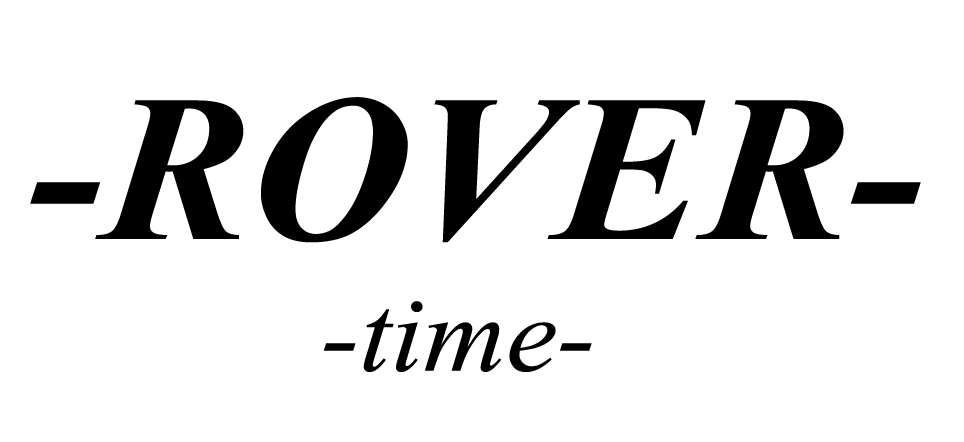Individual Investors Vs Institutional Investors: How They Differ
Content
However, personal investors, or individuals who just casually invest in the stock market exchange, can have practically any level of income. An investor’s salary from investing depends entirely on how well they invest — smart investing choices can lead to high returns, while poor decision-making can lead to bankruptcy. Since institutional investors buy securities and financial assets at a much greater scale than their retail counterparts, they often exert a significant influence over the financial markets and the economies of nations. They are also a major source of capital for companies that are publicly listed on the stock exchange.

While they have more access than ever before to solid financial information, investment education, and sophisticated trading platforms, retail investors may be vulnerable to behavioral biases. They may fail to understand the ways a mass of investors can drive the markets. An angel investor is a high-net-worth private individual that provides financial capital to a startup or entrepreneur. The capital is often provided in exchange for an equity stake in the company. Angel investors can provide a financial injection either once or on an ongoing basis.
4Schwab’s short-term redemption fee will be charged on redemption of funds purchased through Schwab’s Mutual Fund OneSource®service and held for 90 days or less. Schwab reserves the right to exempt some funds from this fee, including certain Schwab Funds®, which can charge a separate redemption fee, and funds that accommodate short-term trading. Trade orders for which price or quantity are changed by the client and, as a result, execute over multiple trades on the same day are each charged a separate commission.
What this means for portfolios
While the information gap has narrowed somewhat in recent years, institutional investors still tend to be better informed than individual investors. Because institutional investors tend to be more knowledgeable and experienced than individual investors, the Securities and Exchange Commission sets out different regulations from what it requires of individuals. While this is perhaps the biggest distinction, there are many smaller differences between individual investors and institutional investors, which we’ll break down here. Insight managed funds are distributed to retail investors in the UK by BNY Mellon Investment Management. For more information, including relevant commentary, analysis and supporting literature please visit the BNY Mellon Investment Management website. 3 Mutual funds pool money from a large number of investors with similar goals into a single investment product.

Real-time last sale data for U.S. stock quotes reflect trades reported through Nasdaq only. Intraday data delayed at least 15 minutes or per exchange requirements. While that may prove to be the case in the near term, some investors contend a sustained pickup in active individual investing interest could help drive the next leg of a bull market. If so, that will require an attitude adjustment by Wall Street pros, who got used to paying little attention to individual investors. The jury is out on whether that enthusiasm will endure, said Ed Clissold, chief U.S. strategist at Ned Davis Research Group, in an interview. It’s unclear how much of the pickup in retail trading merely reflects individuals throwing extra money via stimulus checks at the market, he said.
Fixed Income Investments
Venture capitalists are similar to angel investors, but they specifically look for early-stage companies with high-growth potential. A venture capitalist may be part of a group of investors and together they offer guidance to the company they invest in to promote strategic growth. Venture capitalists typically receive equity in the company in exchange for their investment. An institutional investor is a company or organization that trades securities in large enough quantities to qualify for preferential treatment from brokerages and lower fees.
While they played a relatively small role in the historic rally and bull market leading up to the recession in spring of 2020. Yet, during the pandemic retail investors took more interest in trading themselves and flocked to online brokers, trading apps, and automated investing services. Schroders has expressed its own views and opinions and these may change. This https://xcritical.com/ material is intended to be for information purposes only and is not intended as promotional material in any respect. The material is not intended as an offer or solicitation for the purchase or sale of any financial instrument. The material is not intended to provide and should not be relied on for accounting, legal or tax advice, or investment recommendations.
“People are saying one thing and doing something else because of the circumstances in this environment,” Delwiche said. Investors currently have higher levels of equity exposure than they did in past periods when this sentiment has prompted a bounce, he said. “It makes it feel less like an extreme and more like a bad mood that investors might be experiencing right now,” he said. The percentage of investors feeling bearish in this seven-day period is about double that of an average week, in which about 30% of those surveyed would report thinking prices would go down. About 18% of the participants said they feel bullish, while 21% said they feel neutral. The share of bullish investors ranks among the 20 lowest weeks in the survey’s history, according to the AAII.
These companies help facilitate access to capital markets and help corporations with financing. Hedge funds are generally not open to the retail investor as hedge fund investors are required to have at least $1 million in net worth. These funds invest in a number of ways, but one of the primary goals of the fund is to ‘hedge’ against losses in the overall stock market [Government’s investor bulletin]. To invest with a hedge fund, you need to be an accredited investor. In recent years, changes to the definition of accredited investor have been proposed and some were accepted in the last month.
Online Programs »
We follow strict guidelines to ensure that our editorial content is not influenced by advertisers. Our editorial team receives no direct compensation from advertisers, and our content is thoroughly fact-checked to ensure accuracy. So, whether you’re reading an article or a review, you can trust that you’re getting credible and dependable information.
These investors typically trade 10,000 or more shares at a time and only engage in large transactions with large sums of money. Recent stats show that 80% of the ownership on the S&P 500 is attributed to institutional investors. Additionally, as the overall volume of stocks rises, institutional investors increasingly own a higher percentage of large companies. As retail investors are individuals who are investing their own money, they are more likely to take a keen interest in monitoring and nurturing their investments. Institutional or professional investors and traders are doing so on behalf of another entity and so may not be able to pay as much individualized attention as you can to your own personal account or portfolio. Sometimes the problem of size is a good thing, at least for institutional investors.
Small businesses should also provide the ways and means to achieve these goals and other necessary details for the investors to decide. They may also receive a percentage of a share in the organization’s profit or charge a professional management service fee. Market CapMarket capitalization is the market value of a company’s outstanding shares. It is computed as the product of the total number of outstanding shares and the price of each share. ConglomerateA conglomerate in business terminology is a company that owns a group of subsidiaries conducting business separately, often in distinct industries. It reflects diversification of operations, product line and market to allow business expansion.
Asset management
That said, many online brokerages have eliminated fees for individuals making trades for certain securities like stocks or ETFs. Investors can minimize the impact of fees by avoiding frequent trades and holding investments over the long term. There are a number of different types of mutual funds, including stocks , bonds (fixed-income), balanced, and money market funds.
- 3 Mutual funds pool money from a large number of investors with similar goals into a single investment product.
- Morgan Stanley also noted that retail investors tend to focus on the consumer discretionary, communication, and technology industries.
- The opinions expressed are as of November 2022 and are subject to change without notice.
- However, it is known that institutional investors account for more than 85% of the volume of trades on the New York Stock Exchange.
- Is that because more money came into the market, or is that because the market was up?
The more concentrated you are , the higher your potential returns. Angel InvestorsAngel investors refer to wealthy investors who supply capital to budding businesses in return for a portion of their equity. RevenueRevenue is the amount of money that a business can earn in its normal course of business by selling its goods and services.
Who is an Investor?
It means that developed competence in a niche sector can lead to outsized gains going forward. Institutions can hire people to become specialists in every industry. They may not have the local knowledge you have in your industry, and there may be a lag before they know things, but they have at least a basic knowledge of every industry.
Advice Headline
We prefer short-dated gilts for income.European inflation-linked bondsWe turn neutral. We find valuations attractive in terms of both overall yield and the spread versus government bonds. Coupon income is the highest in about a decade.European high yieldWe are neutral. We find the income potential attractive, market maker crm yet prefer up-in-quality credit exposures amid a worsening macro backdrop. Retail investors are sometimes also called individual investors or retail traders. These are non-professional investors who purchase assets such as stocks, bonds, securities, mutual funds, and exchange traded funds .
And then there’s what an investor and an advisor does either in anticipation of or in response to the market. Is that because more money came into the market, or is that because the market was up? So these are things that we put into the background and sort of tried to put everything we did in the context of the overall market. So we know that there’s still a place a very important place for so many investors, and even the younger investor population, to seek professional advice. I’m joined today by Ken Cella, a notable leader in the private client wealth management industry who currently leads Edward Jones’ Client Strategy Group.
AssetTactical viewCommentaryEquitiesDeveloped marketsWe are underweight. Neither earnings expectations nor valuations fully reflect the coming recession. We prefer to take a sectoral approach – and prefer energy, financials and healthcare.United StatesWe are underweight. Earnings downgrades are starting, but don’t yet reflect the coming recession.EuropeWe are underweight. The energy price shock and policy tightening raise stagflation risks.U.K.We are underweight.
Additionally, investors may receive illiquid and/or restricted securities that may be subject to holding period requirements and/or liquidity concerns. Investments in private placements are highly illiquid and those investors who cannot hold an investment for the long term (at least 5-7 years) should not invest. Cabin fever, however, is hardly the only factor seen driving the renewed interest in the market by individual investors. But others argued that many individual investors, whose ranks aren’t made up soley of rapid-fire day traders, were likely to stick around. How to Invest in ETFs Exchange-traded funds let an investor buy lots of stocks and bonds at once. Morgan Stanley also noted that retail investors tend to focus on the consumer discretionary, communication, and technology industries.
An angel investor typically provides capital in the early stages of a new business, when risk is high. They often use excess cash on hand to allocate towards high-risk investments. Investors typically generate returns by deploying capital as either equity or debt investments. Equity investments entail ownership stakes in the form of company stock that may pay dividends in addition to generating capital gains. Debt investments may be as loans extended to other individuals or firms, or in the form of purchasing bonds issued by governments or corporations which pay interest in the form of coupons.
Reliance should not be placed on the views and information in this webpage when taking individual investment and/or strategic decisions. All investments involve risks including the risk of possible loss of principal. Information herein is believed to be reliable but Schroders does not warrant its completeness or accuracy. Some information quoted was obtained from external sources we consider to be reliable. No responsibility can be accepted for errors of fact obtained from third parties, and this data may change with market conditions.


